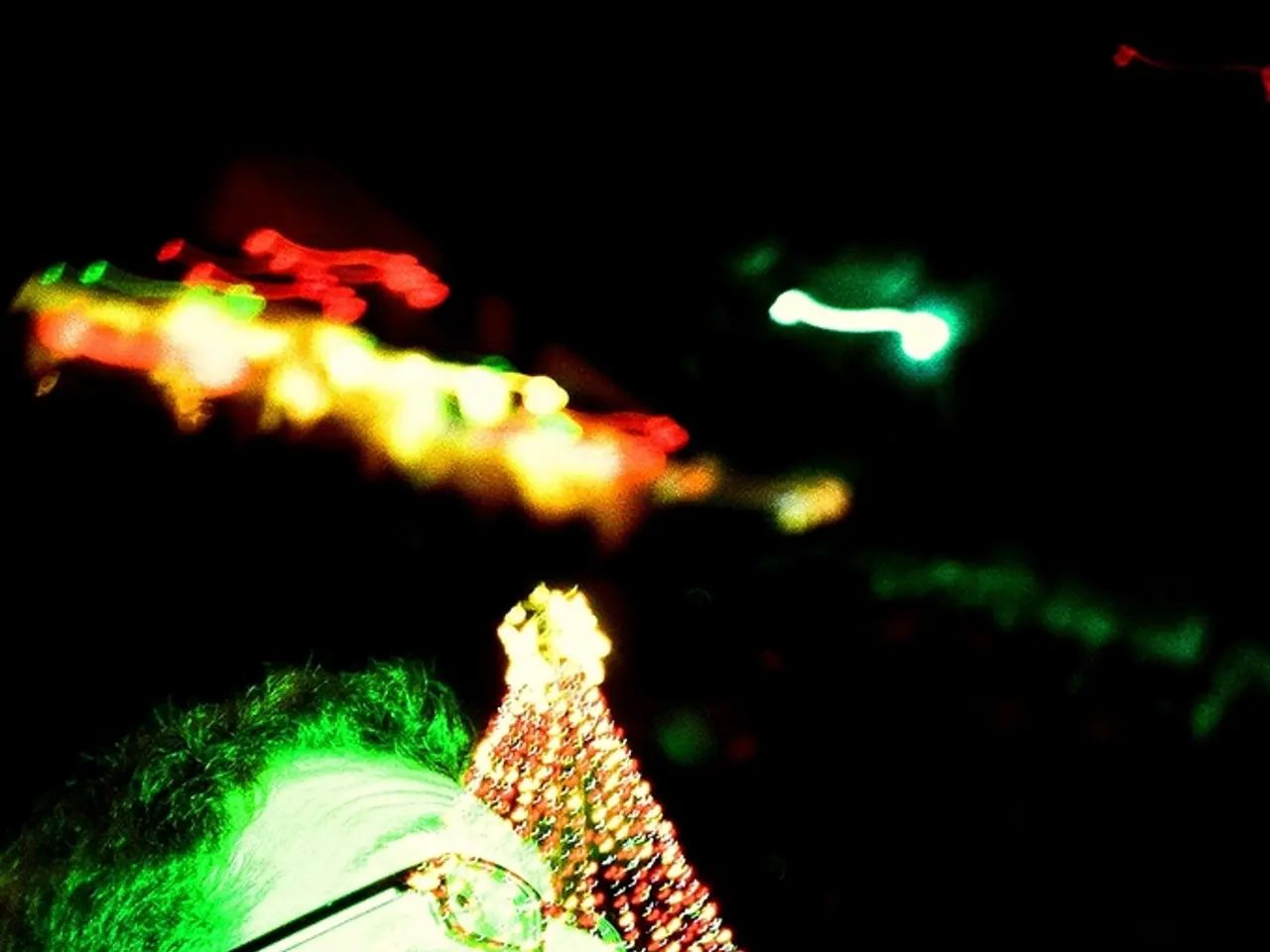Impact of Indoor Illumination on Brain Function and Focus
In our modern world, artificial lighting has become an integral part of our daily lives. However, recent studies have revealed that this seemingly harmless element can have significant effects on our cognitive health and mental well-being.
To support cognitive health, it's essential to create lighting conditions that mimic the natural progression of light throughout the day. Maximizing exposure to natural light during the day can benefit cognitive health, while poor lighting conditions can lead to increased stress and fatigue, impairing decision-making abilities.
As evening approaches, it's crucial to transition to warmer, dimmer lighting to prepare the body for sleep. On the contrary, exposure to artificial light, particularly blue-enriched light in the evening, disrupts circadian rhythms, suppresses melatonin production, and negatively impacts sleep quality, which can impair cognitive functions like working memory, decision-making, and recovery processes.
This disruption also correlates with mood disturbances, including increased risk of anxiety and depression, and emotional dysregulation. Chronic disruption of circadian rhythms by artificial lighting elevates risks for depression and anxiety disorders through immunological, metabolic, and neurological pathways tied to biological clock desynchronization.
Key points about artificial lighting effects on cognitive function and mental well-being include:
- Cognitive functions: Exposure to certain artificial light spectra, especially LED and blue light at night, can initially enhance alertness and cognitive performance but cause longer-term circadian misalignment that impairs memory retention, working memory performance, and decision-making abilities.
- Sleep quality and architecture: Evening artificial light delays sleep onset, reduces sleep efficiency, and alters the natural sleep architecture essential for brain recovery and memory consolidation, thus worsening mental health outcomes.
- Mood and emotional well-being: Chronic disruption of circadian rhythms by artificial lighting elevates risks for depression and anxiety disorders.
- Circadian rhythm role: Circadian rhythms evolved to synchronize physiological processes with natural light-dark cycles. Artificial lighting at inappropriate times breaks this synchronization, causing systemic health issues beyond sleep, including immune dysfunction and metabolic disturbances, which feedback on cognition and mood.
To combat these effects, smart lighting technologies enable users to customize their lighting based on time of day, activity, or mood. Human-centric lighting (HCL) is an innovative approach that prioritizes human health and productivity, simulating natural light variations throughout the day. Employing blue light filters on digital devices in the evening can help mitigate the effect of blue light on sleep patterns.
Exposure to natural light has been shown to improve mood and reduce the risk of depression and anxiety. Establishing routines that reduce exposure to bright and blue light in the evening can promote better sleep and cognitive function. Advances in lighting technology aim to mitigate these harms by mimicking natural daylight patterns using tunable spectra, intensity, and timing. Human-centric lighting uses quantum dots and tunable LEDs to simulate sunlight’s dynamics indoors, supporting circadian entrainment, improved sleep onset, and better daytime cognitive performance, especially in workplaces and healthcare settings.
In summary, careful management of artificial light exposure—minimizing blue light at night and using human-centric lighting that aligns with natural circadian rhythms—can protect and enhance cognitive functions, sleep quality, and mental well-being.
- The integration of artificial lighting into our daily lives has revealed significant impacts on cognitive health and mental well-being in our modern world.
- Maximizing natural light during the day can support cognitive health, while poor lighting conditions can increase stress and fatigue, hindering decision-making abilities.
- As evening arrives, transitioning to warmer, dimmer lighting is crucial for preparing the body for sleep.
- Exposure to artificial light, particularly blue-enriched light in the evening, can disrupt circadian rhythms, affecting sleep quality and impairing cognitive functions.
- This disruption of circadian rhythms can lead to increased anxiety and depression, emotional dysregulation, and higher risks of depression and anxiety disorders.
- Long-term exposure to certain artificial light spectra, such as LED and blue light at night, can initially boost alertness and cognitive performance but later impair memory retention, working memory performance, and decision-making abilities.
- Artificial lighting's impact on cognitive functions goes beyond sleep, as it also affects mood and emotional well-being.
- Employing human-centric lighting (HCL) and blue light filters on digital devices at night can help mitigate these effects on sleep patterns and cognitive performance.
- Natural light exposure has been linked to improved mood and reduced risk of depression and anxiety.
- Establishing routines that limit evening exposure to bright and blue light can promote better sleep and cognitive function.
- Innovative approaches like HCL prioritize human health and productivity, emulating natural light variations throughout the day.
- Quantum dots and tunable LEDs in human-centric lighting help simulate sunlight’s dynamics indoors, supporting circadian entrainment, improved sleep onset, and better daytime cognitive performance.
- Good lighting management, including minimizing blue light at night and using human-centric lighting that aligns with natural circadian rhythms, can protect and enhance cognitive functions, sleep quality, and mental well-being.
- Chronic disruption of circadian rhythms by artificial lighting can lead to systemic health issues beyond sleep, including immune dysfunction and metabolic disturbances, which feedback on cognition and mood.
- Lifestyle adjustments, such as monitoring screen time, using blue light filters, and prioritizing natural light exposure during the day, can contribute to overall health and well-being, including mental health and cognitive function.
- Advances in lighting technology also address other concerns, like cybersecurity, brain, memory, concentration, attention, and overall neurological health in a connected world.
- From fashion and beauty to food and drink, home and garden, data and cloud computing, technology, artificial intelligence, relationships, travel, sports, weather, and medical conditions, the potential applications of human-centric lighting for improving health and wellness are vast and yet to be fully explored.




